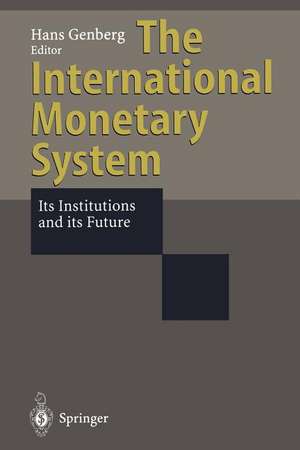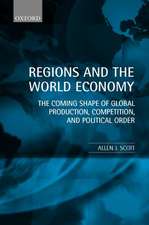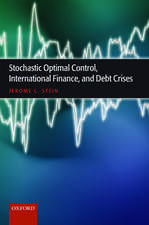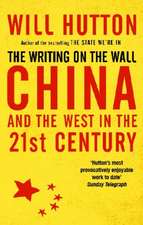The International Monetary System: Its Institutions and its Future
Editat de Hans Genbergen Limba Engleză Paperback – 23 noi 2011
Preț: 636.80 lei
Preț vechi: 749.19 lei
-15% Nou
Puncte Express: 955
Preț estimativ în valută:
121.85€ • 127.56$ • 100.82£
121.85€ • 127.56$ • 100.82£
Carte tipărită la comandă
Livrare economică 07-21 aprilie
Preluare comenzi: 021 569.72.76
Specificații
ISBN-13: 9783642796838
ISBN-10: 3642796834
Pagini: 224
Ilustrații: V, 215 p.
Dimensiuni: 155 x 235 x 12 mm
Greutate: 0.32 kg
Ediția:Softcover reprint of the original 1st ed. 1995
Editura: Springer Berlin, Heidelberg
Colecția Springer
Locul publicării:Berlin, Heidelberg, Germany
ISBN-10: 3642796834
Pagini: 224
Ilustrații: V, 215 p.
Dimensiuni: 155 x 235 x 12 mm
Greutate: 0.32 kg
Ediția:Softcover reprint of the original 1st ed. 1995
Editura: Springer Berlin, Heidelberg
Colecția Springer
Locul publicării:Berlin, Heidelberg, Germany
Public țintă
ResearchDescriere
HANSGENBERG An international monetary system should provide a stable and predictable environment for international trade and investment. At the very least, it should not by itself be a source of disturbances in the world economy, and it should be designed so that policy errors or unforeseen shocks are not unduly transmitted between countries. In this perspective, worldwide integration of goods and financial markets present a particular challenge. Such integration increases the cross-border effects of economic policies at the same time as interlocking payments and financial systems transmit financial disturbances rapidly throughout the world. As the degree of integration and interdependence changes over time, is not a foregone conc1usion that international monetary institutions and mechanisms always remain well adapted to the state of the world economy. Occasional review of the performance of the system as well as proposals for improvements are therefore necessary. The contributions to this volume have l been brought together with this in mind.
Cuprins
1 Repairing the International Monetary System — An Unfinished Task?.- 2 Prospects for the International Monetary System and Its Institutions.- Discussion.- Discussion.- 3 Integrating the Central and East European Countries into the International Monetary System.- Discussion.- Discussion.- 4 Cooperation Across the Atlantic and Across the Rhine.- Discussion.- Discussion.- 5 Emerging Currency Blocks.- Discussion.- Discussion.- 6 The IMF and the World Bank at Fifty.- Discussion.- Discussion.














